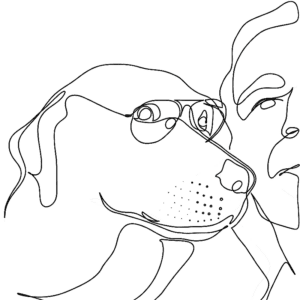Padre Pio once remarked that the world could more readily exist without the sun than without the Eucharist. What a remarkable statement. It is imperative, therefore, to take account of what we gain from the great gift of the Eucharist in our lives and also what we lose due to the terrible effects of Eucharistic deprivation.
The Eucharistic Doctor
Among other titles, St. Thomas Aquinas is known as the Eucharistic Doctor because of his writings on the Church’s greatest gift, the sacrament of the Lord’s Body and Blood, Soul and Divinity.
His “Prayer After Holy Communion” states succinctly the potent effects of receiving the Eucharist. He asks that Holy Communion may be for him “a helmet of faith and a shield of good will” and that it would
purify me from evil ways and put an end to my evil passions. May it bring me charity and patience, humility and obedience, and growth in the power to do good. May it be my strong defense against all my enemies, visible and invisible, and the perfect calming of all my evil impulses, bodily and spiritual.
Thomas goes on to ask that the Lord will have mercy on him, a sinner, and lead him safely through death to everlasting happiness in the eternal Eucharistic Banquet to come.
That’s quite a lineup of spiritual benefits! In short, the Eucharist bestows both virtue and spiritual protection, even from our own unredeemed nature.
What happens, then, when a whole society is deprived of those benefits?
The answer is clear: just watch the news.
Eucharistic Lockdown
Let’s not beat around the bush: the Eucharist has been locked down for three months. Now, even when the churches are starting to open back up, they are forced to follow draconian rules that don’t seem to apply to other “essential” institutions of culture such as abortion clinics, liquor stores and tattoo parlors.
In a neighboring parish where I live, the mask-and-glove-clad priest stands behind a Plexiglas panel with a slot at the bottom through which he slides the ciborium so that the mask-clad, frightened parishioner can self-communicate (standing exactly six feet away from the next cowering parishioner, of course).
Why don’t we all just put on Hazmat suits to receive the Bread of Life? Or better yet, those cool space suits that the astronauts wore when they rocketed to the Space Station some weeks ago.
You get my point. Spiritually speaking, cutting off access to the Eucharist is utter insanity.
A Glut of Evil
The absence of the Eucharist means being deprived of grace. I’m not claiming that God’s grace is strictly limited to the celebration of the Eucharist or that we cannot find solace and strength from our faith in other ways.
In spiritual terms, however, locking down the Eucharistic is like shutting down the US Treasury for three months. Imaging the rioting that would take place if that happened.
What American cities have been experiencing since the unjust killing of George Floyd a month ago (which had universal agreement before the riots started) is equivalent to what human beings experience when they are deprived of grace: the ravages of vicious behaviors and unchecked evil.
This social chaos is an externalization of the inner dynamics St. Thomas was talking about. It is deprivation of virtue and a loss of spiritual protection for society, a glut of evil on a very wide scale.
When the “helmet and shield” have been taken away, evil runs rampant in our midst. All virtue seems to have disappeared in the smoke of atrocious lies and false accusations (racism, white privilege, etc.). Public officials who swear an oath of office to protect their societies from just such evils have renounced their duties in a scandalous display of Marxist expediency.
A Vacuum of Responsibility
What is worse, in my estimation, is the lack of push back on all this evil aggression from politicians and the general public. The Cardinal Virtue of Fortitude has vanished overnight. That virtue requires people to step up to the plate and defend their heritage.
W.B. Yeats said it best in his poem, “The Second Coming”:
Things fall apart; the centre cannot hold;
Mere anarchy is loosed upon the world,
The blood-dimmed tide is loosed, and everywhere
The ceremony of innocence is drowned;
The best lack all conviction, while the worst
Are full of passionate intensity.
In some ways Yeats was reflecting what St. Paul said centuries ago, that “the mystery of lawlessness is already at work. But the one who restrains is to do so only for the present, until he is removed from the scene” (2 Thessalonians 2:7).
Into this vacuum of social chaos rushes the spirit of lawlessness, which, by any measure seems to be unleashed in American cities at this moment. Time will tell whether Americans will put up with this for very long. The jury is still out.
The Preservative Effects of Grace
If the center of our spiritual universe and our society is to hold, we need Christ. No Eucharist, no peace. Period.
You don’t really know the value of invisible grace until you are deprived of it. Then you wake up and understand that grace operates both to give God’s life to your soul but also to protect you from evil.
When the Church shuts down the one force of virtue and spiritual protection that gives the greatest benefit to society, chaos ensues – for everyone.
What we are witnessing, in real time, are the terrible effects of Eucharistic deprivation.
(This article was originally published on Catholic Stand on July 5th, 2020, in the midst of the Covid-19 lockdowns.)
